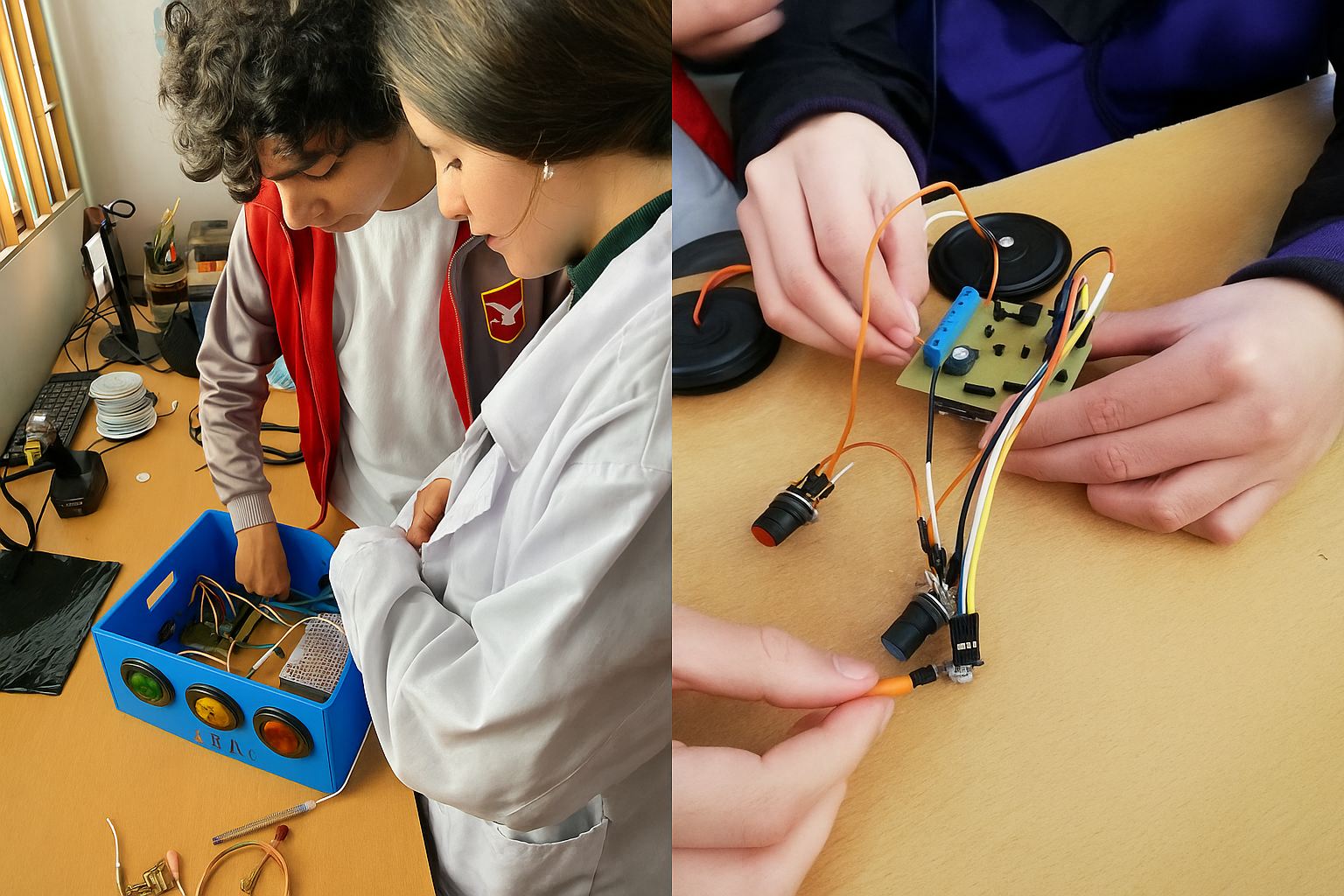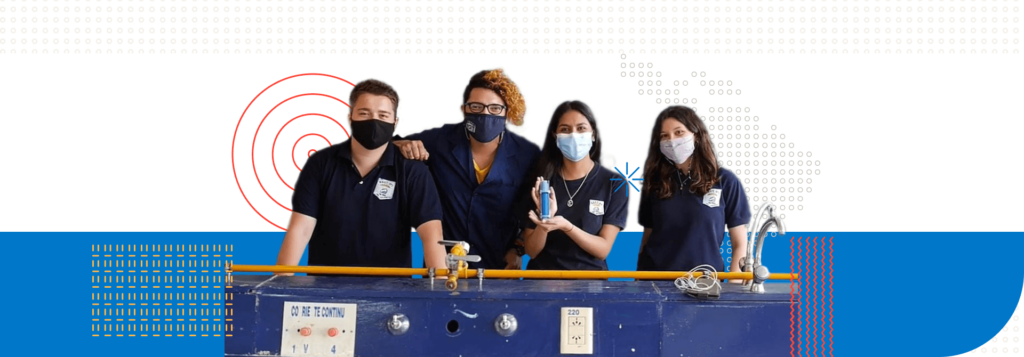In the education field, competences are defined as the mobilization of knowledge, skills, attitudes, and values that help young people to solve everyday problems, exercise citizenship and navigate the world of work. The development of some of them as critical thinking, digital education and life design have guided the construction of curricular guidelines in countries such as Brazil, Chile and Peru.
Both in high school as well as technical school – where the names/terms used and timing vary depending on the country – these skills are directly related not only to the learning journey of different disciplines, such as languages and mathematics, but also empathy and communication.
Although curriculum guidelines are important, it is not always easy to apply this learning within the school environment. In addition to the particular challenges posed by each educational environment, some types of content are more difficult to grasp. Mathematics, for example, is a common challenge for students in Latin American countries. According to the International Student Assessment Program 2022 (PISA) results, 7 out of 10 young people in Brazil are unable to solve basic math problems. Other countries in Latin America exhibit similar problems, failing to do much better in this ranking.
STEM (Science, Technology, Engineering and Mathematics) Projects have at their very core an emphasis on making scientific learning less abstract and more meaningful for students. When betting on creative methodologies involving real problems, which have a direct impact on or that generate empathy among students, a shift occurs between theory and practice, with the development of a prototype, whether physical or representational. For example, if a chemical formula helps to create a biofertilizer for a community that suffers from the use of pesticides, its learning is simpler.
Soft skills are also essential for STEM projects to turn into reality. Empathy is the starting point of the development for any projects of this type: in order to solve a problem, you need to have a careful listening and a loving look to understand which people are the most affected and how it is possible to come up with joint solutions. Teamwork, communication and critical thinking skills are also an important part of the STEM project journey.
We’ve separated five practices which are highlighted in the Solve for Tomorrow program in Latin America that show how STEM projects help develop the curriculum’s core competencies in a creative way.
Fogão Híbrido (Hybrid Stove Project) – finalist in the 2024 edition of the Solve for Tomorrow Program in Brazil: Although the project came from a team that already had skills with robotics, building a stove that to reduce gas consumption challenged the students knowledge of chemistry, forcing them to use the school laboratory a number of times to perform experiments, such as testing how long a flame lasts and oxygen’s trajectory among other things. The connection to this knowledge was so great that the students are now doing science-related courses at college.
Biocombustible Junteiro (Biofuel Juntero) – finalist of the 2024 edition of the Solve for Tomorrow Program in Colombia: Empathy, creativity and chemistry learning came together in this innovative project where students created a natural fuel from a type of cactus, which is viewed as a weed in the region where they live. In addition to adopting an empathic approach in order to understand how the project could have a positive impact on the local community, the students also assembled a small mobile refinery, thus placing the production of the fuel closer to those who would be affected by it, as well as also demonstrating the learning process to the entire school community.
Seekers of Silence – winner of the 2023 edition of the Solve for Tomorrow Program in Chile: Communication is one of the essential soft skills for the whole learning path: listening attentively and developing a capacity for dialogue despite differences are part of this competence, which played a key role in this project aimed at reducing noise pollution for people with Autism Spectrum Disorder (ASD). In addition to improving their communication skills during the various stages of prototype presentation, the students also began to gain a better understanding of how people see the world differently.
Fake Out – winner of the 2024 edition of the Solve for Tomorrow Program in Chile: The mediator teacher’s decision to invite a group of introverted students to put together a project on communication proved to be a winning bet. During the making of the VeriVerify application, which can distinguish between false and true news using an artificial intelligence robot, the students honed their communicative skills to such a marked degree that they even managed to produce a fun video for presenting the project, something that would have been unthinkable prior to undertaking the STEM project.
Juegos tradicionales digitales sin fronteras (Traditional digital games without borders) – finalist in the 2023 edition of the Solve for Tomorrow program in Ecuador: It was by means of empathy, a basic soft skill in the Project Based Learning (PBL) methodology, that a group of students extended their empathic gaze to people with disabilities and created a game that turns the learning process itself into a game. They were pleasantly surprised to note that the site has also become a playful tool for younger students as well as for those with learning difficulties.




